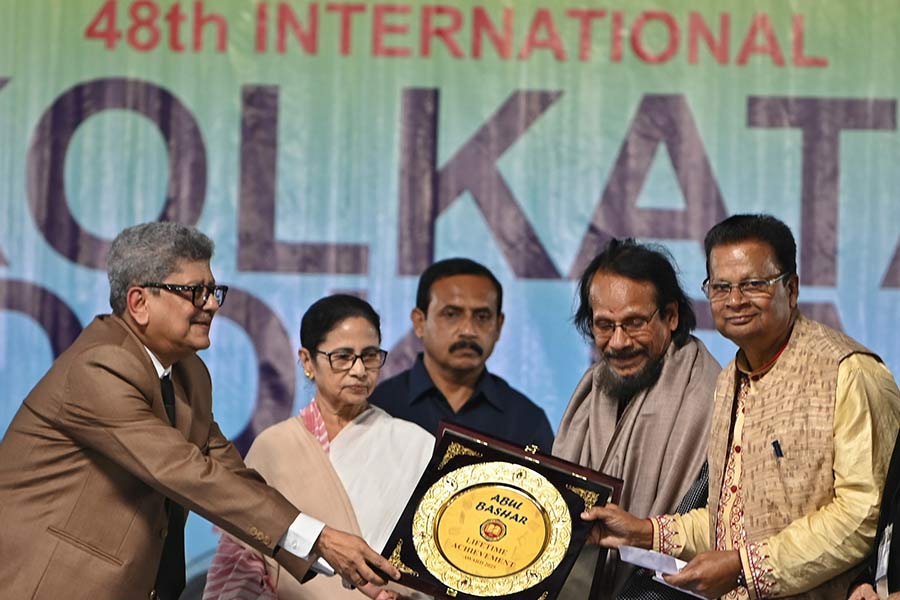 Wednesday, 29 January 2025
Wednesday, 29 January 2025
 Wednesday, 29 January 2025
Wednesday, 29 January 2025
Following two years of talks, countries are scrambling to finalize a binding global treaty that would limit the surge of plastics polluting the planet.
Representatives from some 175 countries will try to overcome stark differences on how to tackle the waste deluge in the final round of negotiations this week in Busan, South Korea.
The UN Environment Program (UNEP) has said a treaty would be the most significant multilateral environment deal since the 2015 Paris climate accord, given the huge scale of the plastic crisis.
"It is an insurance policy for this generation and future ones, so they may live with plastic and not be doomed by it," said Inger Andersen, UNEP executive director, in 2022, when nations first agreed to forge a treaty to end plastic pollution.
In 2019, the world generated around 350 million tons of plastic waste. Just 9% was recycled, with the rest being incinerated, going to landfill or ending up in the environment.
Once discarded, durable plastic products, such as single-use drinking straws, can remain in the environment for hundreds of years and contaminate ecosystems and the food chain. With some 99% of plastics sourced from fossil fuels, plastic production is also exacerbating the climate crisis, say scientists.
Reducing plastic production the key challenge
Environmental campaigners are calling on countries to consider reducing plastic polymer production globally by 40% by 2040 — a proposal put forward by Rwanda and Peru during the last round of talks in Ottawa, Canada, in April.
This could happen through various mitigation measures used across the plastic life cycle. These include a reduction in plastic production; the elimination of toxic and avoidable single-use plastics; and the redesign of packaging to make it more reusable, biodegradable and fully recyclable.
Multinational companies that use plastic packaging for their products are promoting more plastic recycling as a solution to the crisis, including through more efficient chemical recycling technologies as opposed to mechanical methods.
But groups such as environment campaigners Greenpeace are calling for the treaty to focus on rapidly reducing plastic production. Production is set to triple by 2050, partly because making virgin plastic is cheaper than recycling — especially with an oversupply of fracked gas in countries like the US.
The fossil fuel industry is also rapidly expanding virgin plastics as their next major growth market to replace business lost to the green energy transition.
Recycling and waste management cannot keep pace with the explosion in production.
"Waste management capacity is overwhelmed; we have an oversupply and abundance of plastic," said Christina Dixon, Ocean Campaign leader at the New York-based Environmental Investigation Agency (EIA), which is promoting the treaty.
Will a plastics treaty be ambitious enough?
But some say even a "40x40" goal is insufficient, especially amid efforts to limit the global temperature rise to 1.5 degrees Celsius (2.7 Fahrenheit) in comparison with preindustrial times, a target agreed as part of the Paris climate accord to avoid ever more extreme impacts from global heating.
By 2050, emissions from expanding production could consume at least 21-31% of the remaining carbon budget to stay within 1.5C. Modeling suggests a 75% cut in plastic production by 2040 is necessary to stay under the threshold, according to Greenpeace.
Meanwhile, a report released by environmental scientists at Eunomia Research and Consulting and commissioned by the EIA says the 40x40 goal would work to significantly cut emissions only if coupled with a rise in global recycling rates to 63%, and that it wouldn't be enough for 1.5C.
The report also stated that the plastic sector would need to decarbonize, using renewable energy, for example, while production would have to peak in 2025 at the same time.
But as the final negotiation deadline approaches, countries are still at odds over how far the rules should go.
Oil-producing nations oppose plastic production limits
Many nations that will decide the scope and ambition of the plastics treaty have interests that clash with such rules.
Led by Rwanda and Norway, more than 60 countries have joined a High Ambition Coalition that wants to end all plastic production by 2040.
But according to EIA's Christina Dixon, several countries have been "very difficult" during the four rounds of negotiations so far and "don't want to see any agreement at all."
Oil-producing nations like Iran, Russia and Saudi Arabia are focused on increased recycling and not on plastic production cuts, wanting instead to preserve a vital fossil fuel market into the future.
Daniela Duran Gonzalez, a senior legal campaigner with the Washington DC-based Center for International Environmental Law, said during the last round of treaty talks that negotiations were not over a "waste treaty" but "the future of fossil fuels."
The US, a plastics and fossil-fuel giant, changed tack following the last treaty negotiations and now supports a plastic reduction target. The fossil-fuel-rich nation had favored better plastics recycling and reuse, and voluntary compliance as opposed to binding production limits.
That stance could change again with the incoming Donald Trump administration. The president-elect has long promised to roll back climate policies and expand fossil fuel production.
"Given what happened under the previous Trump administration, I think it's quite unlikely that Trump would ratify the treaty," said Dixon.
But nations in the Global South, along with EU member states, are keeping the dream of a plastics treaty alive.
Griffins Ochieng, programs coordinator at the Kenya-based Center for Environment Justice and Development, told a briefing held before the final treaty negotiations that African nations are demanding "an end to plastics pollution across their whole life cycle."
Reduction in plastic production will be key, along with the "elimination" of harmful chemicals, he said.
While it is possible a treaty text will not be agreed in Busan, Dixon insists that negotiators should reflect a "huge global appetite for a binding treaty."







